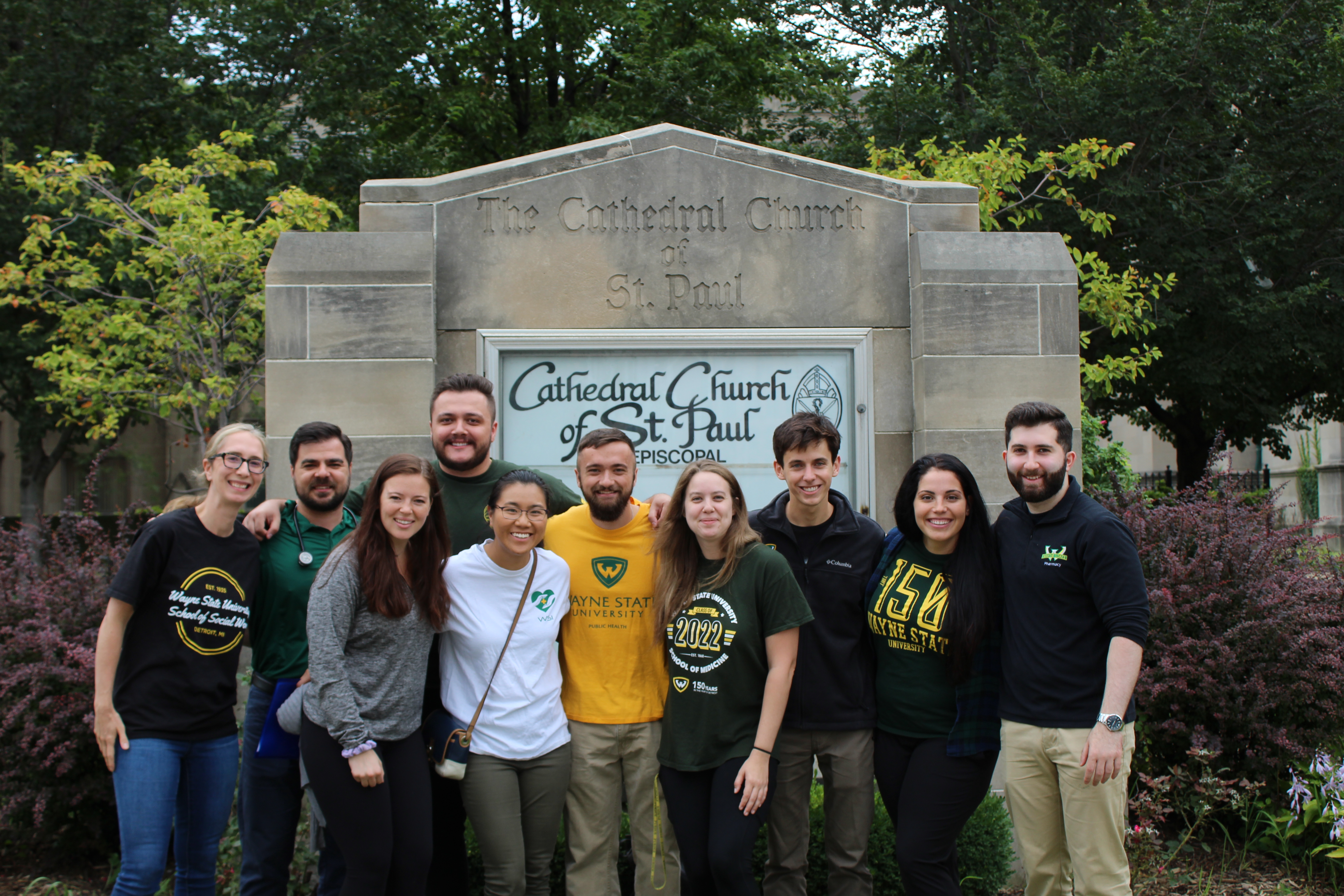Fieldwork
Community Homeless Interprofessional Program (CHIP) Clinic
 The Community Homeless Interprofessional Program (CHIP) started in late 2013 when a local church, the Cathedral of St. Paul, approached the medical school about providing basic medical services after a weekly breakfast they hosted for people of Detroit who were experiencing homelessness. WSU health professions programs collaborated to develop an initiative to educate homeless individuals about medical and community resources and provide them with some basic health services. A monthly clinic program was designed, and the first program occurred in April 2014. Each college is responsible for providing both a faculty member and students at the monthly clinic. The Doctor of Pharmacy Program and the Schools of Medicine and Social Work have further developed CHIP and thus have become the CHIP core students and faculty.
The Community Homeless Interprofessional Program (CHIP) started in late 2013 when a local church, the Cathedral of St. Paul, approached the medical school about providing basic medical services after a weekly breakfast they hosted for people of Detroit who were experiencing homelessness. WSU health professions programs collaborated to develop an initiative to educate homeless individuals about medical and community resources and provide them with some basic health services. A monthly clinic program was designed, and the first program occurred in April 2014. Each college is responsible for providing both a faculty member and students at the monthly clinic. The Doctor of Pharmacy Program and the Schools of Medicine and Social Work have further developed CHIP and thus have become the CHIP core students and faculty.
For more information or to get involved with CHIP, contact Dr. Aline Saad.
Diabetes Education and Wellness (DEW) Clinic
Established in 2011, the Diabetes Education and Wellness (DEW) Clinic is an interdisciplinary, student-run free clinic that seeks to enrich the educational experiences of students as well as expand access to health care services for uninsured or underinsured individuals with type 2 diabetes. Students from several disciplines in the EACPHS, including Pharmacy Practice, Occupational Therapy, Physical Therapy, Dietetics and Nutrition, Social Work, Clinical Laboratory Sciences, and Medical Practice, work in partnership with the Super All Year (SAY) Detroit Family Health Clinic, which was founded by columnist and author Mitch Albom. With the support of faculty and staff from different departments and through interdisciplinary coordination, the clinic provides well-rounded free education about the many aspects of type 2 diabetes to individuals in the community.
For more information or to get involved with DEW, contact Dr. Nanette Hannum.

